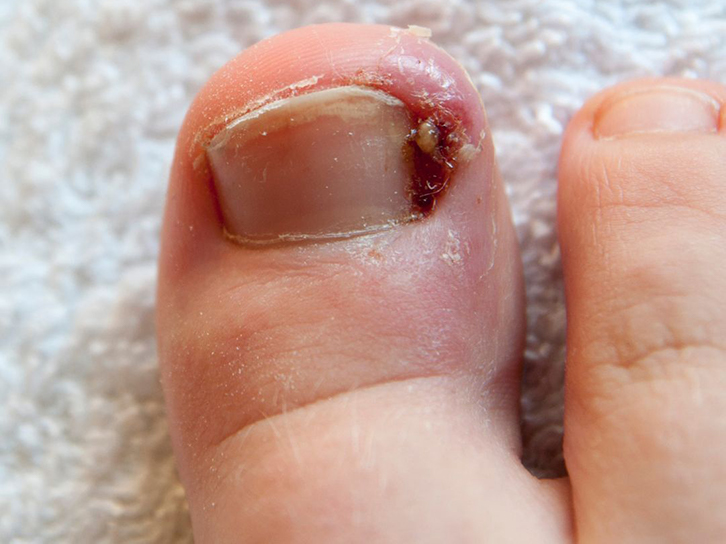Ingrown toenails can become excruciatingly painful if not properly addressed in a timely manner. For individuals with diabetes, it’s imperative to refrain from attempting self-treatment and instead seek surgical removal by a qualified healthcare professional. Diabetes and other circulatory issues can significantly prolong healing times. Research suggests that frequent self-removal of ingrown toenails should be avoided as it may lead to infections or delayed healing processes. However, there are natural remedies you can explore to prevent ingrown toenails from worsening into infections.
1. Appropriate Footwear Selection
Allow the affected area to naturally air dry. Opt for open-toed shoes or sandals until the discomfort subsides. Choose footwear that doesn’t constrict your toes, avoiding high heels, especially for women, until full recovery. Instead, opt for flats or low heels to alleviate pressure on the toes. It’s advisable to abstain from pedicures until complete healing has occurred.
2. Trim Toenails Straight
When trimming your toenails, ensure they’re cut straight across to hinder ingrown toenail growth and minimize infection risks. If the edges of your nails are sharp, consider filing them rather than cutting. Additionally, seek professional guidance for addressing yellow nail discoloration.
3. Epsom Salt Soaks
Epsom salt, scientifically known as magnesium sulfate, can alleviate soreness and soften the affected area, facilitating the extraction of the ingrown nail. Soak your feet in warm (not hot) water with two tablespoons of Epsom salt twice daily for 15 to 20 minutes.
4. Lemon Gauze Method
Wrap a slice of lemon around the affected toe using bandages or gauze and leave it overnight. Despite potential discomfort, the acidic properties of lemon can help combat infections effectively.
Essential Oils For Ingrown Toenails
Utilizing natural remedies such as essential oils appeals to individuals seeking alternatives to chemical-based medications. While these remedies, often favored for purposes like aromatherapy, have their merits, they are not a panacea for all conditions. Ingrown toenails, for instance, necessitate professional attention from a licensed podiatrist due to their potential rapid deterioration and increased discomfort. Moreover, many home remedies for ingrown toenails pose risks and may exacerbate the condition.
Employing essential oils for ingrown toenails carries inherent risks for several reasons. Firstly, the high concentration of most essential oils can potentially irritate the delicate skin surrounding the affected toe upon application. While certain oils like tea tree oil boast mild antifungal or antibacterial properties, they are insufficient in preventing or treating ingrown toenail infections effectively. Diluting these oils in water for warm soaks does little to enhance their efficacy. Nevertheless, soaking the feet in warm water with tea tree oil can aid in softening the skin around the ingrown toenail and provide mild relief, albeit not substantial enough for complete treatment. This approach may alleviate symptoms temporarily, facilitating comfort while awaiting professional podiatric intervention.
RELATED: Review of Essential CBD Extract: what do they offer?
A Note from Biocleve
In cases of ingrown toenails, relying solely on home remedies such as essential oils for treatment is inadequate. Without proper medical intervention, the condition is prone to exacerbation regardless of attempted home treatments. Consulting a licensed podiatrist is essential for accurate diagnosis and discussion of viable treatment options to effectively address and resolve the ingrown toenail.
